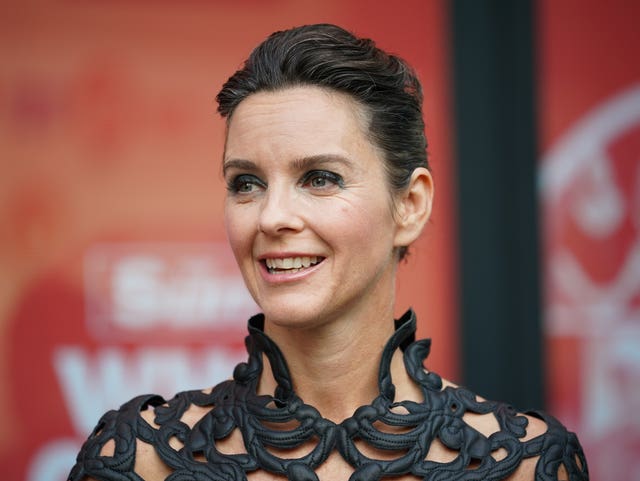Channel 4 boss urges Ofcom to be ‘brave’ and back public service broadcasters
Alex Mahon also urged the Government to reconsider copyright proposals to ensure they ‘don’t harm British creativity’.

Channel 4 chief executive Alex Mahon has called on Ofcom to be “brave” in ensuring public service broadcasters remain discoverable in an age of misinformation and disinformation.
Launching the broadcaster’s annual report in central London, Ms Mahon, who recently announced she was stepping down from her role, made a final call for the regulator and policy-makers to ensure that younger generations remain connected to the world through “objective truth”.
A report from Ofcom is due to be published this summer and is expected to lay out recommendations on which TV apps should be given prominence to ensure public service content can be easily found.
She said: “I would say that doing nothing simply isn’t an option because, without action, we really risk losing that generation’s connection to the world around them and society’s grip on objective truth. But we definitely can’t do it alone as just Channel 4.

“I do encourage Ofcom and the policy-makers to be brave, to stand with us against misinformation and disinformation by ensuring that Britain’s peerless public service media remains prominent and easily discoverable on all the platforms that younger generations use.”
Ms Mahon also urged the Government to reconsider copyright proposals to ensure that they “don’t harm British creativity”.
This comes as the Data (Use and Access) Bill is at its final reading and could allow copyrighted work to be used to train AI models without permission or remuneration.
The Bill has been condemned by high-profile figures in the creative sector, including musicians such as Sir Elton John, Annie Lennox, Sir Paul McCartney and Kate Bush, who say the Government’s plans to make it easier for AI models to be trained on copyrighted material amount to the theft of music and will decimate the sector.
Ms Mahon added: “Ofcom has confirmed that they’re looking at digital prominence for PSM (Public Service Media) content, and the Government, I hope, is reconsidering its stance on copyright proposals, on training LLMs (Large Language Models) to ensure that they don’t harm British creativity.”
In April, Channel 4 announced that Ms Mahon would be stepping down as the chief executive after nearly eight years.
Joining the organisation in 2017 as the channel’s first female chief executive, she will be leaving the business in the summer when the broadcaster’s chief operating officer, Jonathan Allan, will serve as interim chief executive.
The annual report revealed that Ms Mahon took home £1.29 million last year, including £544,000 worth of bonus payments which was worth 88% of her salary.
This marked a 30% increase on the £993,000 total pay package she received in 2023.
Senior executives have the opportunity to earn up to 80% of their salary in performance-related bonuses each year with Ms Mahon’s being lifted this year due to a “great performance”, according to the company’s annual report.
The company’s pay-setting committee said the bonus payouts reflected a “year of strong strategic, financial and operational delivery in 2024”, particularly while “navigating a challenging transformation across the organisation”.
It cited coverage including the Paralympics, current affairs programmes, and growth of its streaming platform.
The report also revealed that Channel 4 ended 2024 with a pre-tax deficit of £12 million, better than the £52 million reported the previous year, while the broadcaster’s revenue rose to £1.04 billion, a 1% rise year-on-year.
It said digital advertising made up 30% of total revenues, reaching a target that the corporation set itself back in 2020, a year earlier than planned.
Meanwhile, the broadcaster said it spent £643 million on content last year, slightly less than the £663 million in the previous year, though it saw a 4% rise in spending on commissioning content from Scotland, Wales, Northern Ireland and the English regions.





